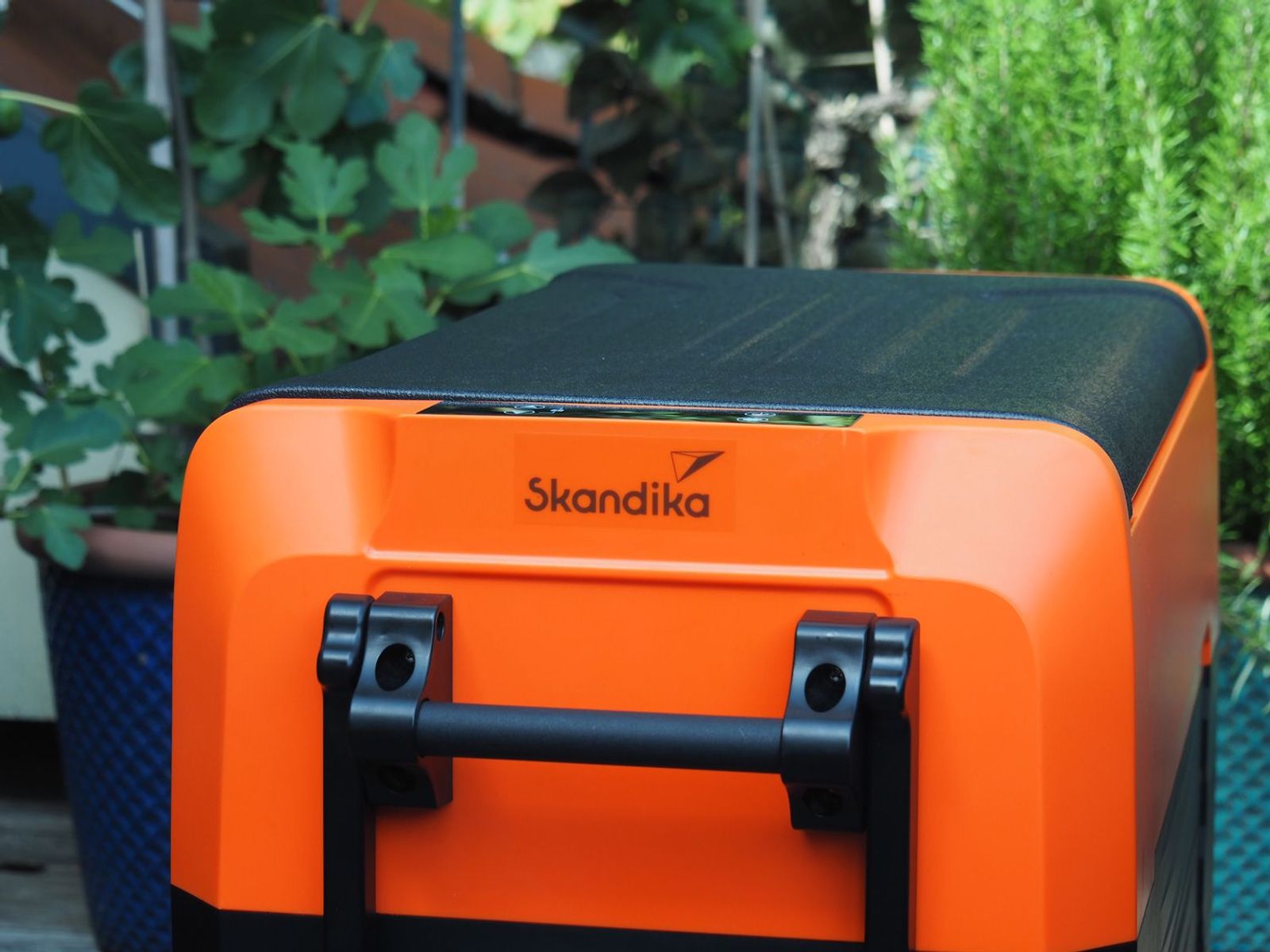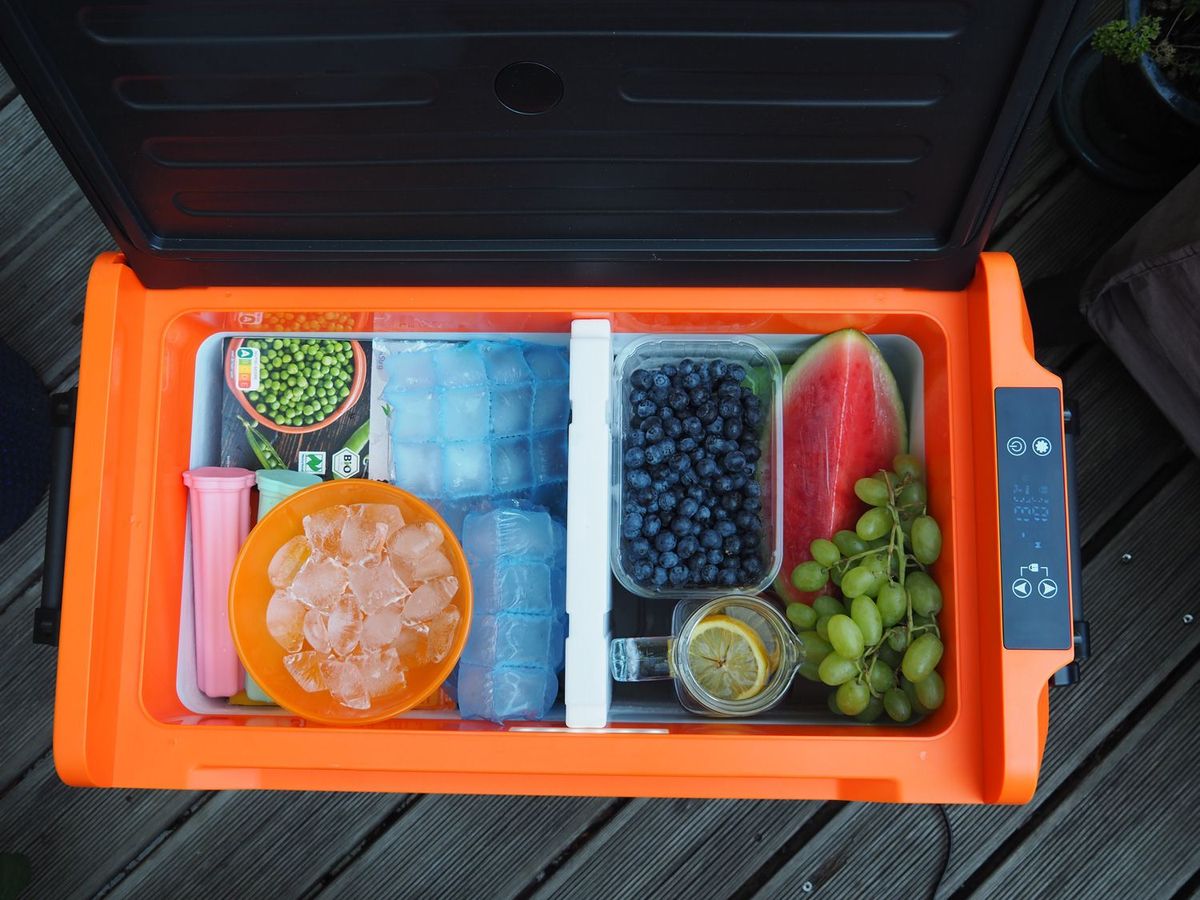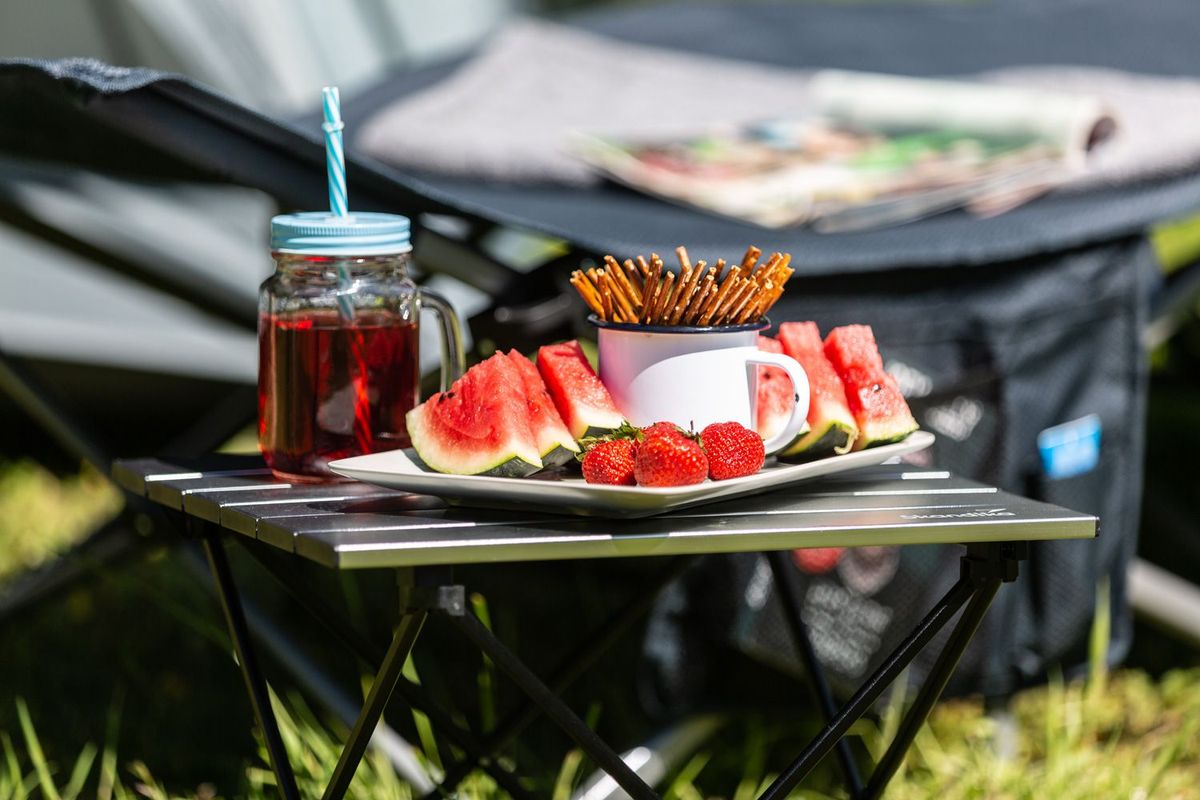
5 tips for storing & cooling food when camping
This keeps your food fresh and protected
Cooking is often an absolute highlight of camping. Preparing a delicious meal outdoors in nature and sharing these wonderful moments with friends and family. We explain the best way to store your food at the campsite or when camping** and what options are available for refrigeration to keep everything nice and fresh.
1. use a cooler or freezer box for perishable foods
It's impossible to imagine a campsite without a cool box, especially in summer. If only to enjoy an ice-cold drink and to protect one or two products from the sun and heat. Here you have the choice of different cool boxes for cooling food when camping.
The classic cool box with cooling elements
This cool box keeps your food nice and fresh for a few hours. Even if you only want to chill drinks: put your drinks in the fridge at home in advance. This way, the products cool each other and stay cold for longer. At the campsite, you usually have the option of refreezing the cooling elements. It's best to always take a spare with you so that you can replace them. This option is practical if you want to cool food without electricity when camping.
The electric cool box
If you are connected to electricity at the campsite, an electric cool box is usually the more practical alternative. It keeps your food chilled around the clock without you having to replace the batteries in between. This is particularly advisable for longer stays. Our electric freezer box even has the advantage that you can easily freeze food such as ice cream. Conveniently, it can be divided into two sides and regulated individually on both sides so that you have a cooling compartment and a freezer compartment.

Rent a freezer compartment at the campsite or share the fridge
Alternatively, there is often the option of renting a fridge compartment on the campsite. This compartment in the communal fridge for cooling food while camping often costs a small fee. You then have your own freezer compartment in the fridge, which is often located in communal areas. This allows you to cool your food for the next 2-3 days.
2. use storage boxes & locking clips
For a longer stay at the campsite, it is worth buying sustainable food and tinned food such as pasta, rice, oil or spices in advance. Think about what you need so that you don't take too much with you or pack the right ingredients. It is best to store these foods in sealable storage boxes. This protects them from moisture and insects. You can also pack food that has already been opened in the boxes and seal them with closure clips. Then you don't have to worry if you don't empty a packet of pasta or biscuits straight away.
When camping, it's often not just insects that are a problem, but larger animals that can be attracted by the smell of food. In many countries, foxes and bears are not uncommon on campsites. In many places there is even an obligation to keep food outside the sleeping tent in tightly closed boxes so that you don't have to expect any uninvited guests.
3. buy perishable food preferably fresh
Dairy, fish and meat products in particular tend to spoil more quickly. To avoid this problem, it is best to buy the ingredients for your evening meal fresh at the campsite. Many campsites usually have either a small supermarket directly on the site or in the immediate vicinity. If this is not the case, try to avoid such products or don't buy more than will fit in your cool box or you want to prepare directly on the same day.
4. be careful not to buy too much
Planning ahead is the be-all and end-all in the camping kitchen. This will prevent you from buying too much and having to throw something away in the end - which of course also applies to everyday life. Also make sure that you keep older food within sight so that you don't lose sight of it and use it up first. Write yourself a shopping list with the ingredients you urgently need and try to keep your shopping list as short as possible. If you have bought too much and your holiday is over or your road trip is moving on to the next destination, ask your camping neighbours if they can still use any of your food before you have to throw anything away.
5. dispose of waste immediately
To avoid having to deal with vermin in your tent during your camping holiday, it is important to make sure you dispose of your waste directly. Fruit or vegetable peelings and other food waste in particular attract creepy-crawlies, which you certainly don't want to share your tent with.

When camping, always try to keep your food sealed or refrigerated. Only buy small quantities so that everything fits in the cool box or you don't have to throw anything away.
